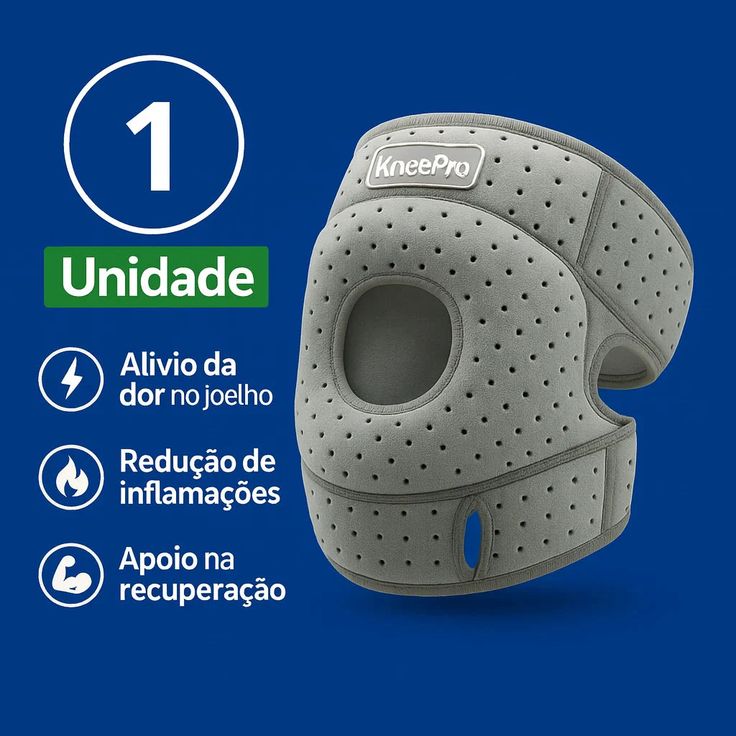Como Escolher o Melhor Whey Protein para Seus Objetivos, Escolher a proteína whey certa pode parecer um labirinto. Com tantas opções por aí, é fácil se perder. Não importa se você está querendo ganhar massa muscular, emagrecer ou apenas manter um estilo de vida saudável, há uma proteína whey para você. Mas como escolher? Não se trata apenas de pegar o primeiro pote que você vê. Você precisa pensar sobre o que quer alcançar, verificar os ingredientes e talvez até mesmo falar com um profissional. Vamos dividir para que você possa fazer a melhor escolha para seus objetivos.
Key Takeaways
- Understand the different types of whey protein: concentrate, isolate, and hydrolysate.
- Identify your fitness goals to choose the right type of whey protein.
- Check the nutritional content for protein, sugar, and fat levels.
- Look for quality indicators like amino acid profile and absence of additives.
- Consider taste and solubility for a pleasant whey protein experience.
Como Escolher o Melhor Whey Protein para Seus Objetivos
Understanding Different Types of Whey Protein
When you’re on the hunt for the right whey protein, knowing the different types is a must. Let’s break them down:
Whey Protein Concentrate
O Whey Protein Concentrate (WPC) é frequentemente o preferido dos iniciantes. Ele é feito por meio de um processo de filtragem simples que mantém uma porção significativa de nutrientes como lactose e minerais. Normalmente, ele contém cerca de 70-80% de proteína, com algumas gorduras e carboidratos restantes.
Isso o torna uma ótima opção se você está procurando aumentar sua ingestão de proteína sem gastar muito. Também é uma escolha sólida para aqueles que não se importam com um pouco de gordura e carboidratos extras em sua dieta. O Whey Protein Concentrate é conhecido por seu conteúdo nutricional superior.
Whey Protein Isolate
If you’re aiming for a leaner protein source, Whey Protein Isolate might be your match. This type goes through more extensive filtering, stripping away most fats and carbs, leaving you with over 90% protein. It’s ideal if you’re counting calories or need to limit lactose intake. Plus, it digests quickly, making it perfect for post-workout recovery.
Whey Protein Hydrolysate
For those with sensitive digestion, Whey Protein Hydrolysate is a lifesaver. This type is pre-digested, meaning the proteins are broken down into smaller particles, which speeds up absorption. It’s often pricier but beneficial if you need fast absorption to aid muscle recovery after intense workouts. Hydrolysate tends to have fewer BCAAs compared to isolate but offers quicker digestion, making it suitable for immediate pre- or post-workout consumption.
Choosing the right whey protein depends largely on your personal goals and dietary needs. Whether you want a balanced protein option or a lean, fast-absorbing one, there’s a whey protein out there for you.
Identifying Your Fitness Goals

Como Escolher o Melhor Whey Protein para Seus Objetivos
Choosing the right whey protein is all about aligning it with your specific fitness goals. Whether you’re aiming to build muscle, lose weight, or maintain general health, each goal requires a different approach.
Muscle Gain
If your primary goal is to pack on muscle, then you’ll want a whey protein that supports muscle growth and recovery. Whey protein concentrate is often favored for this purpose due to its higher calorie content and beneficial nutrients. It provides a good balance of protein and carbohydrates, which can be particularly helpful post-workout to replenish energy levels and aid in muscle repair.
Here’s a quick guide to what you might look for:
- High protein content to support muscle synthesis
- Moderate carbohydrates to refuel energy stores
- Additional amino acids like leucine for enhanced muscle growth
Weight Loss
For those focusing on shedding pounds, whey protein isolate might be your go-to. It’s low in both fat and carbohydrates, making it an ideal choice for a calorie-restricted diet. The high protein content helps keep you full longer, reducing the temptation to snack.
Consider these points:
- Low-calorie content to fit into a calorie deficit plan
- Minimal sugars to avoid unnecessary calorie intake
- High protein to maintain muscle mass while losing fat
General Health
If you’re looking to maintain or improve overall health, your protein choice should support a balanced diet. Whey protein can be a convenient way to ensure you’re meeting your daily protein needs without excess calories or sugars.
For general health:
- Balanced nutritional profile with adequate vitamins and minerals
- Easy digestibility to suit daily consumption
- Versatility in use, like adding to smoothies or meals
Understanding your fitness goals is the first step in choosing the right whey protein. It helps narrow down options and ensures that your supplement works in harmony with your lifestyle and dietary needs.
By defining what you want to achieve, whether it’s muscle gain, weight loss, or just staying healthy, you can make informed choices that align with your fitness journey. If you’re still unsure, consider reading about the benefits of choosing between whey and plant-based protein powders to see which aligns best with your goals.
Evaluating Nutritional Content
When choosing a whey protein, understanding its nutritional breakdown is key. You want to make sure it aligns with your fitness goals and dietary needs. Here’s what to consider:
Protein Content
The primary reason for picking a whey protein is its protein content. Look for a product that offers at least 20 grams of protein per serving. This ensures you’re getting enough to support muscle repair and growth. A higher protein content is particularly important if you’re aiming to build muscle or need extra protein in your diet.
Sugar and Carbohydrate Levels
You don’t want unnecessary sugars sneaking into your diet, especially if weight loss is your goal. Check the label for added sugars and carbs. Ideally, a good whey protein should have minimal to no added sugars. This keeps your calorie intake focused on the proteins rather than unwanted carbs.
Fat and Calorie Count
While whey protein is generally low in fat, it’s still wise to check. Products with high fat content might not be the best choice if you’re trying to lose weight. Examine the calorie count too, ensuring it fits into your daily intake goals. A low-fat, low-calorie whey protein can be a great ally in maintaining a balanced diet.
Remember, not all whey proteins are created equal. The best choice hinges on your personal health objectives and dietary preferences. Always consider what works best for your body and lifestyle.
By focusing on these nutritional aspects, you can better navigate the wide array of whey protein options and find one that truly supports your health journey.
Checking for Quality and Purity
When it comes to choosing a whey protein, ensuring quality and purity is essential. You want to make sure you’re getting the best for your body without any unwanted extras. Here’s how you can check for quality and purity in whey protein.
Amino Acid Profile
A complete amino acid profile is crucial. Look for whey protein that includes essential amino acids, particularly BCAAs like leucine, isoleucine, and valine. These are vital for muscle growth and recovery. A good product should provide around 5.3g of BCAAs in total.
Table: Amino Acid Content
| Amino Acid | Amount (g) |
|---|---|
| Isoleucine | 1.5 |
| Leucine | 2.5 |
| Valine | 1.3 |
| Histidine | 0.4 |
| Lysine | 2.2 |
| Methionine | 0.5 |
| Phenylalanine | 0.7 |
| Threonine | 1.7 |
| Tryptophan | 0.4 |
Como Escolher o Melhor Whey Protein para Seus Objetivos
Absence of Additives
Avoid whey proteins with excessive additives, artificial colors, and flavors. Natural ingredients are always a better choice. Check the label for a short list of recognizable ingredients. If you see a long list of unpronounceable chemicals, it might be best to steer clear.
Certifications and Standards
Certifications can provide extra assurance of quality. Look for products that have been tested by third parties for purity and potency. Certifications like ISO, NSF, or Informed-Choice are good indicators that the product meets high standards.
“Choosing the right whey protein is not just about the protein content; it’s about ensuring that what you consume is pure and free from unnecessary additives.”
When evaluating a whey protein supplement, ensure it offers 20-25 grams of protein per serving and has minimal additives. Consider the protein source, essential amino acids, and third-party testing for purity and potency.
By focusing on these aspects, you can ensure that your whey protein choice supports your health and fitness goals effectively.
Considering Taste and Solubility
Flavor Options
Choosing a whey protein that tastes good to you can make all the difference. With flavors ranging from classic chocolate and vanilla to more exotic options like mocha or salted caramel, there’s something for everyone. Finding a flavor you enjoy will make sticking to your supplement routine much easier.
Mixability
No one likes a clumpy shake. The best-tasting protein powders often get high marks for their mixability. Whether you’re using a shaker bottle or a blender, look for products that dissolve easily in both water and milk. This not only improves the texture but also ensures you’re getting the full nutritional benefits.
Personal Preferences
Ultimately, the best whey protein for you is one that fits your personal taste and lifestyle. Some people prefer a thicker shake, while others like it smooth and light. Consider how you’ll be using your protein—whether as a meal replacement or a post-workout boost—and choose accordingly.
When it comes to whey protein, taste and solubility are more than just perks—they’re key factors in making your supplement experience enjoyable and effective. If you dread drinking it, you’re less likely to stick with it, no matter how beneficial it might be.
Consulting with Health Professionals
Importance of Professional Guidance
When it comes to choosing the right whey protein, consulting a healthcare professional can make a big difference. These experts can help you navigate through the maze of protein options, especially if you have dietary restrictions or health concerns. They can pinpoint specific needs like lactose intolerance or digestive issues that might affect your choice.
Personalized Recommendations
A doctor or nutritionist can provide tailored advice based on your individual health profile. This often starts with a series of tests and assessments to understand your body’s unique requirements. From there, they can suggest the most suitable type of whey protein and how to integrate it into your diet effectively. This personalized approach ensures that you are not just taking any supplement but the one that aligns with your specific fitness goals.
Health Considerations
Before jumping into the world of supplements, it’s crucial to consider any health conditions you might have. Professionals can help you evaluate potential risks and benefits, ensuring that your choice of whey protein supports your overall health strategy. They can also guide you on the appropriate dosage and timing to maximize benefits while minimizing any adverse effects.
Making informed decisions about supplements is essential for achieving your fitness goals without compromising your health. Always seek professional advice to ensure your choices are safe and effective.
For more insights on how to choose the right protein powder, check out our guide on understanding fitness goals and dietary needs.
Reading Product Labels Effectively

Como Escolher o Melhor Whey Protein para Seus Objetivos
When you’re picking out a whey protein, those labels can be your best friend. Sure, they’re packed with info, but knowing what to look for can make all the difference.
Key Ingredients to Look For
Start with the basics: protein content. You want a product that offers a solid amount of protein per serving, usually around 20-25 grams. This is the main reason you’re buying whey, after all. Then, check the amino acid profile. A complete profile, especially with BCAAs like leucine, isoleucine, and valine, is crucial for muscle growth and repair.
Understanding Nutritional Information
Next up, dive into the nutritional details. Keep an eye on sugar and carb levels—lower is better if you’re watching your calorie intake. Fat content, particularly saturated fat, should also be minimal. Here’s a quick checklist:
- Protein: Aim for 20-25g per serving
- Sugars and Carbs: Keep it low
- Fats: Watch out for high saturated fat levels
Avoiding Misleading Claims
Labels can be tricky with all their fancy wording. Be wary of claims like “all-natural” or “fat-free”—they might not mean what you think. Always cross-reference the claims with the ingredients list. If there are too many unrecognizable ingredients, it might be wise to steer clear.
Remember, a simple and clean ingredient list is often a sign of a quality product. Less is more when it comes to additives and artificial flavors.
By taking a moment to really look at the label, you can make a smarter choice that aligns with your fitness goals and dietary needs.
Conclusion
Então, aí está. Escolher a proteína whey certa não é só pegar o primeiro pote que você vê na prateleira. É saber o que você quer alcançar e entender o que seu corpo precisa. Não importa se você quer ganhar massa muscular, emagrecer ou apenas manter seu físico atual, há uma proteína whey para você. Lembre-se de verificar os rótulos quanto ao conteúdo de proteína, perfis de aminoácidos e quaisquer extras indesejados, como açúcares ou gorduras.
E, ei, não se esqueça de provar alguns sabores — afinal, você vai beber isso regularmente! Por fim, sempre considere conversar com um profissional de saúde para ter certeza de que sua escolha está alinhada com suas necessidades alimentares. Boa suplementação!
Frequently Asked Questions
What is the best type of whey protein for muscle gain?
For muscle gain, whey protein isolate is often recommended due to its high protein content and low levels of fats and carbohydrates.
Can whey protein help with weight loss?
Yes, whey protein can aid in weight loss by promoting a feeling of fullness and supporting muscle maintenance while reducing calorie intake.
Is whey protein safe for people with lactose intolerance?
Whey protein isolate usually contains very low levels of lactose, making it suitable for many people with lactose intolerance. However, it’s best to check with a healthcare provider.
How do I know if a whey protein is of good quality?
Look for whey protein with minimal artificial ingredients, a complete amino acid profile, and certifications for quality and purity.
What should I consider when choosing a whey protein flavor?
Consider your taste preferences and how you’ll use the protein. Some flavors mix better with certain liquids or foods.
Why is it important to consult with a health professional before taking whey protein?
Um profissional de saúde pode fornecer aconselhamento personalizado com base em suas necessidades alimentares, objetivos de condicionamento físico e quaisquer problemas de saúde que você possa ter. Como Escolher o Melhor Whey Protein para Seus Objetivos











